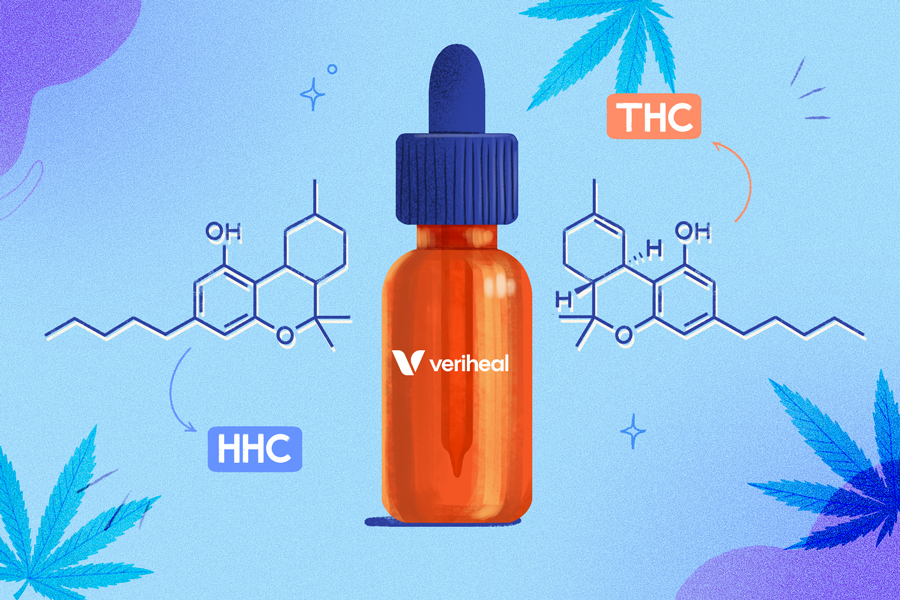Many sellers are eyeing opportunities to compete in the saturated cannabis marketplace with hexahydrocannabinol (HHC). This controversial substance is often blended with appetizing ingredients to create “Cookies and Cream” flavor chocolate bars, Haribo-like gummies, and a truckload of other tempting treats across legal and illegal U.S. states, including disposable vape pens, cartridges, and tinctures. However, this semi-synthetic cannabinoid could soon be shot down faster than it rises to fame.
Finland recently banned sales of HHC products—marketed as producing similar psychotropic effects to cannabis-derived THC—with Sweden set to follow in the European country’s footsteps. This news comes following the publication of a report from the European Monitoring Centre for Drugs and Drug Addiction (EMCDDA) illuminating concerns over this cannabis derivative. Nonetheless, HHC is still spreading like wildfire across the rest of the European Union and the United States.
Between May and December 2022, HHC products were detected in 70% of EU member states. Even in U.S. states where cannabis is illegal, getting “high” with HHC is not challenging. HHC began claiming the limelight after the 2018 Farm Bill’s passing, which sparked a substantial increase in demand for various cannabinoids (two of the most sought-after being HHC and Delta-9 THC due to their mind-altering effects.) If it’s not being advertised at the side of a road somewhere, HHC is widely available online from uncertified sellers.
How Is HHC Created?
The story of HHC rewinds to the 1940s, when it was first created by a well-known chemist named Roger Adams. Praised for determining the chemical constitution of various natural substances, including marijuana, plant alkaloids, and complex vegetable oils, Adams was educated at Harvard University.
To better understand how he created HHC, you’ve got to get a bit scientific. The American organic chemist added hydrogen to an original THC molecule to modify its physical properties. After the process of hydrogenation occurred—a process first described in a 1947 patent document—HHC came to be.
Once the structure of delta-9 THC is hydrogenated, a double bond is replaced with two hydrogen atoms. The result? Its molecular weight changes and becomes more stable, which basically means that HHC has an extended shelf life and is less susceptible to UV light and heat damage.
Commercial HHC is produced using hemp-derived CBD, and it is not the only cannabinoid that can be converted to other cannabinoids. By switching up the molecular chemistry of cannabis compounds, it’s possible to turn them into something else.
Key Takeaways From the EMCDDA Report
Titled “Hexahydrocannabinol (HHC) and related substances,” the report was published in Lisbon, Portugal, on April 17, 2023. While it did emphasize the lack of information on HCC in Europe, the report does note that HCC was identified for the first time “in or around May 22” following a seizure by Danish police.
The compound was found in a Switzerland-manufactured branded food product/sleep aid labeled ‘CBN Night’. Laboratory analysis revealed that the product also contained cannabinol (CBN) and that the packaging info did not list HHC as one of the ingredients.
Why You Should Get Your Medical Marijuana Card
Veriheal has satisfied millions of patients nationwide by giving them access to these benefits
- Larger purchase limits
- Peace of mind
- Enhanced legal protection
- Access to higher potency strains
- Save up to 25% on cannabis purchases
- Skip the line at the dispensary
HHC disposable vape pens are also being sold in vending machines alongside nicotine-containing vaping products in various parts of Germany, with some selling for 40 EUR per person. While the report notes high demand for HCC, the authors noted that they were unsure about the market size and scale.
Another point worth noting from the report was that, although HHC has been known for over six decades, “no documented human pharmacological or toxicological studies have been conducted.” On the other hand, the report notes that the “pharmacology of HHC is similar to that of Δ9-THC.”
According to the report, HHC does not necessarily comply with Good Manufacturing Practices (GMPs), and therefore consumers may be exposed to unforeseen risks, such as contamination caused by “extraction residues or synthetic by-products.” The report says that heavy metal traces might be present, as well as derivatives of other cannabinoids that were originally present in the hemp used to extract the HHC.
Even more interesting is the recent preprint (Tesfatsion et al., 2022) discussed in the report, which states that HHC inhibited the proliferation of pancreatic cancer cells. The report prompts researchers to further explore the toxicological properties of HHC, along with the potential medical benefits and health/safety risks.
Is HHC Psychoactive?
While it cannot be confused with THC, HHC does produce slightly similar effects, depending on how much you use. Lab-produced HHC contains a combination of active and inactive HHC molecules. The active HHC shares a great binding affinity with your body’s cannabinoid receptors, whereas the inactive molecules do not.
The majority of evidence pertaining to HHC’s effects and side effects is anecdotal. Consumers usually experience the same unwanted side effects as THC users, too, such as anxiety, eye dryness, and redness, hunger, and paranoia. Reports from users typically describe the psychoactivity of HHC as being somewhere between delta-8 and delta-9 THC.
Is HHC Legal?
Hemp-derived cannabinoids that may cause intoxication have surged in popularity in the U.S. because they are exempt from the Controlled Substance Act, unlike THC. Currently, HHC is not federally outlawed. However, it’s advisable to stay up-to-date on the cannabis laws in your state to check the latest rules pertaining to HHC and other cannabinoid-containing products.
In Europe, HHC is not scheduled under the 1961 and 1971 United Nations (UN) drug conventions. Rather, the semi-synthetic cannabinoid has been overseen as an NPS since 21 October 2022 under the terms of Regulation (EC) No 1920/2006 and Council Framework Decision 2004/757/JHA.
Find out more about HHC’s presence in the U.S. and EU markets by downloading a copy of the EMCDDA report online.
Author, Share & Comments















